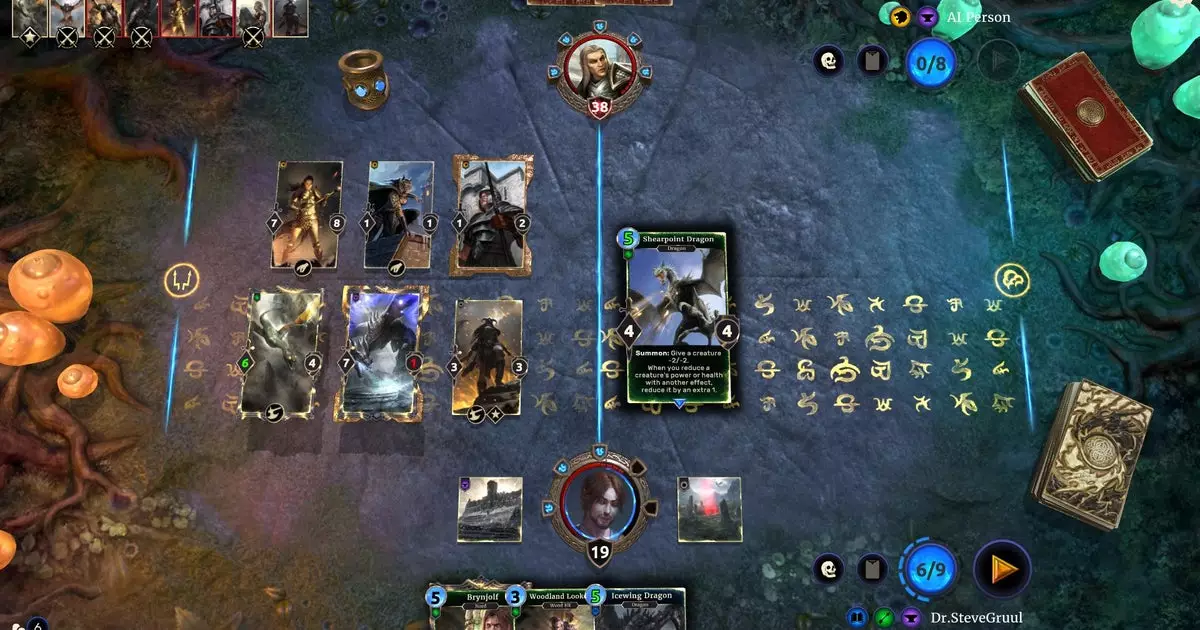The landscape of free-to-play gaming is as unpredictable as the shifting sands of Tamriel, and it has once again claimed another victim in the form of The Elder Scrolls: Legends. Bethesda’s card game, which had carved out a niche in the vast universe of The Elder Scrolls, will officially be removed from sale on Steam and will cease operations entirely on January 30, 2025. The sudden announcement, subtly enveloped in a routine in-game message and highlighted on its Steam page, reminds players that nothing is permanent in the gaming world. The closure serves as a hard lesson for consumers who invest both time and money into live service titles without assurance of longevity.
Initially released to much anticipation, Legends presented itself as a fresh competitor in the collectible card game genre. Some critics lauded it for its incremental innovations compared to established titles like Hearthstone, particularly praising its unique rune system that introduced strategic layers often absent from its contemporaries. However, while the gameplay mechanics may have held promise, the game ultimately struggled to expand its audience or sustain regular updates beyond its initial offering. Having ceased development after just two years, the game soon became another statistic in the often-fleeting success stories of free-to-play ventures.
Many players now face the harsh reality that alerts them to a systemic issue within the realm of live service games. The Elder Scrolls: Legends is not the first, nor will it be the last, to suffer from this discontinuation. The lack of an offline mode means that all the hard-earned progress and strategies that players have cultivated will evaporate into thin air once the servers are down. This sense of impermanence breeds frustration, leaving players to ponder the value of the commitment they made. The intersection of consumer investment and corporate short-sightedness creates a disheartening narrative as beloved franchises, once bred from rich lore and expansive worlds, are reduced to mere casualties in the ongoing battle for player attention and revenue.
The ramifications of such closures echo throughout the entire gaming industry. The investments made by players, often exceeding mere monetary value, become essentially worthless overnight. The closure of Legends epitomizes a growing discontent among the gaming community regarding how developers handle live service titles. It raises questions about the sustainability of this model and encourages a larger conversation about player rights and expectations. Why does such a significant amount of creative effort seemingly vanish alongside dedicated communities? As gaming enters a new era, players are left to wonder if their loyalty is even a factor in the longevity of their favorite titles.
As The Elder Scrolls: Legends prepares to exit the stage, it illuminates the vulnerabilities inherent in the modern gaming landscape. Players deserve a more thoughtful engagement with the products they cherish, including assurances of support and continued relevance, or at the very least, an exit strategy that honors their dedication. The decision to shutter Legends may signify a quaint passage in gaming history, but it is also a clarion call for better practices that respect both creativity and community.

